ASI has been at the forefront of important conversations about climate transition leadership since its inception in 2018. We’re actively working to create programs and partnerships that build and enable transition leadership toward a low-carbon, socially-inclusive economy in Canada.
We know that proactive and collaborative action is needed to advance progress on these commitments – from all sectors and organizations. We caught up with Ed Whittingham, Co-Founder of ASI, to chat about how ASI came to be and what drives us to do the work we do to bridge the gap between commitments and action.
When you co-founded ASI, what were your motivations? What did you feel was needed in Canada at the time?
ASI was launched at GLOBE Forum 2018 in Vancouver by three of us – we had one person from academia, the other from industry, and the third from civil society. We all agreed that no single agency, government, or post-secondary institution was tackling the human dimension of the transition to a competitive, low-carbon economy.
We saw policy starting to move, but we still didn’t see organizations adequately preparing their people with the skills and transition leadership competencies to lead that kind of transition at an organizational level.
We had tested week-long master classes through Ryerson (now Toronto Metropolitan University), York University, and Imperial College in London, England, and found we were consistently oversubscribed. That acted as proof of concept that there was a real appetite for what we were offering and that people weren’t finding it elsewhere.
What shifts have you noticed in the climate action space in the past couple of years?
Climate change, inclusive economic growth, social justice, Indigenous reconciliation, and Indigenous economic reconciliation–20 years ago, these issues were only on the peripheries of companies, governments, and academia. Now they’re core to business.
These days, organizations can’t succeed without a strategy around social justice, equity, diversity and inclusion, Indigenous reconciliation, and climate change. Fundamentally, these are drivers that are close to their core business. Now, when we want to speak to people in organizations, these issues are at the forefront.
Climate action is also starting to affect capital flows, which is a great sign that this is now mainstream. For example, Canada’s oil and gas sector is still having difficulty attracting capital from anywhere outside Alberta because of lingering concerns about ESG performance in the oil and gas sector.
Climate action leadership is also now a basic expectation if you want to win the competition for top talent – and that’s a competition that no company, government, or NGO can afford to lose. While compensation is a strong factor, many people who are entering the workforce are motivated to work for an organization that they’re proud to support.
What trends give you the most hope for climate action leadership?
For some, often those with more privilege and power, the impacts of climate change can be distant and indirect, happening in faraway places to people they don’t know, and on a timeline that’s difficult to comprehend.
And at the opposite end of the spectrum, given the age of those governing the US, we have the Inflation Reduction Act in the US – $400B committed to action on climate, but in the form of industrial policy. That’s one of the world’s largest emitters committing to a plan that on the surface is aimed at taming inflation, but in reality, actually retools the economy with tax breaks for every clean energy developer out there.
On the Canadian side, we’ve had several federal elections now where political parties consistently garner a majority of the votes. A majority of Canadians, over several elections, are saying: we value strong climate action. When you have climate popping up as a top voter issue, that’s very encouraging.
What do you see as important trends in the Canadian climate landscape?
I spend most of my day working on industrial decarbonization. Let’s look at where we have progress. We’re getting more traction with cities taking climate action very seriously. We’re seeing many interesting things happening around urban design and transportation. Electric vehicles are slowly but surely winning the competition for individual passenger vehicles.
Trends are moving in the right direction. However, despite companies saying they’d like to do the right thing, we still produce cement, steel, ammonia, and chemicals in ways that are inefficient and GHG-intensive. But if you’re a cement producer, it’s hard to produce low-carbon cement that’s going to double the price of your products relative to your competitor.
Canada still needs to do a better job at that heavy industry level to create incentives to help cement, steel, chemical, ammonia, and fertilizer producers. We need to send a signal to get these industries to join the movement around decarbonization. We need everyone moving together so that, for example, cement producers have that signal that they can go ahead and spend a billion dollars on carbon capture plants.
As we look ahead to Canada’s climate action, what are some of the areas that need the most attention and investment?
Upskilling is really important and at the heart of the difference that ASI wants to make in Canada. Not a week goes by that I don’t have contact with someone who is concerned about issues like DEI, Indigenous reconciliation, or climate change, and wants to make it the focus of their career.
But how do they make that shift if they’re at the midpoint of their career? Most people can’t afford to take a two-year hiatus from earning to return to school. We need to be laser-focused on upskilling opportunities that people can do in the evenings or perhaps while at work if an employer is supportive.
We see it not just in early and mid-career professionals, but also in people with 10-15 years left in their careers who want this last career move to make a difference. That’s exciting, but it’s also a tremendous challenge. How do we take that desire in the workforce, provide the necessary upskilling, and then find these people jobs in the economy doing what is close to their hearts?
We’re focused on leading that transition in the Canadian economy with a variety of learning providers. And we want to see more micro-credentials so people can take a time-out mid-career and walk away with a credential that gives current or prospective employers confidence that a candidate has a certain set of competencies.
We want to see three and four-day workshops and ongoing mentorship programs. I’d like to see an explosion in capacity building and upskilling around Canada with various forms and price tags. Companies recognize they will have to allow these career pivots at times to hold onto good people. These are skill sets the company needs. It’s not a hard sell for employers right now, but they’re not in the business of professional development. They’re looking for third-party help, and that’s where ASI fits.
Helping people gain the transition leadership skills needed to drive progress on climate action will take a collaborative effort – one built from partnerships and programming that encourages action from organizations and individuals.
Get in touch to learn more about how our programs contribute to the rapid upskilling necessary in Canada’s climate action landscape. Let us know if your organization or association needs support to reach your climate action goals – we’d be happy to help!


